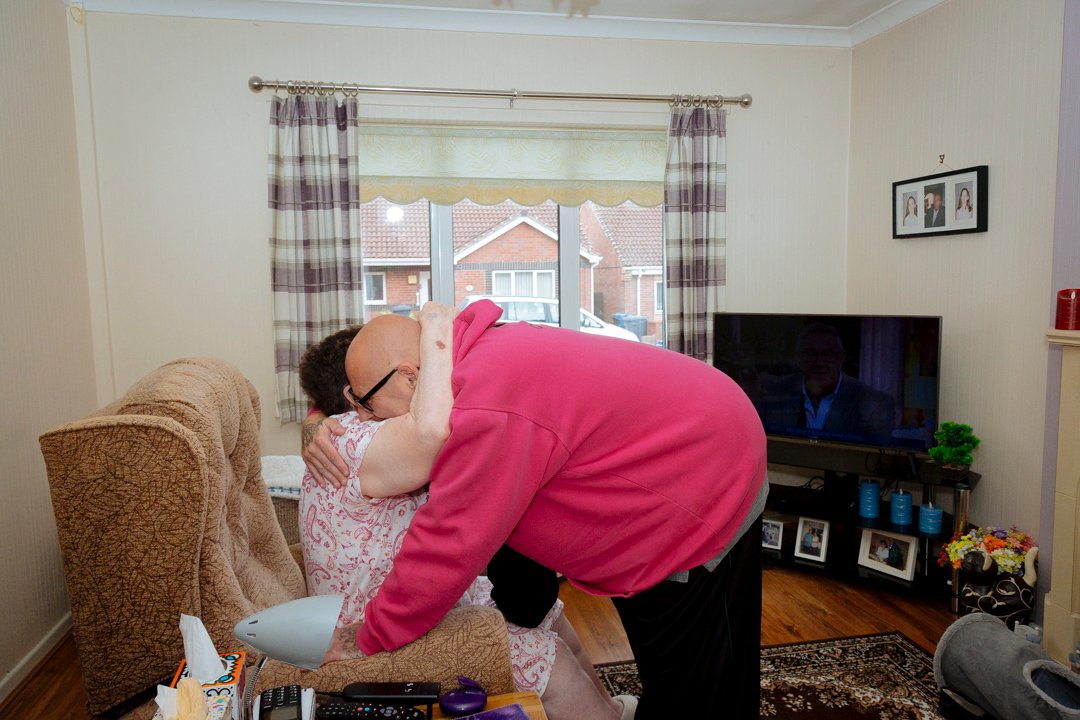Valuing and redesigning care will help solve poverty - and benefit all of us
A key part of solving poverty is fixing the broken relationship between care, work and pay. Abby Jitendra’s new role is putting that firmly in focus - looking at why society undervalues care, what are the consequences, and the solutions.
Caring is a deeply human act – it’s the hidden buttress that sustains us, gives us the best start in life, and holds human relationships together. As long as we have children, get sick, and get old, we’ll always need to care and be cared for. And it’s hugely meaningful – out of love or duty we want to spend time caring for family and friends, and we want any paid care they receive to be good quality.
But caring, rightly, doesn’t come cheap. It doesn’t fit easily around modern work, meaning you stop work or reduce your hours to do it. Paid care isn’t easily streamlined or made cheaper without seriously compromising on quality, meaning it can swallow a significant chunk of your income or savings. Yet care workers’ pay tends to be very low, barely enough to sustain a life - let alone a good life.
The ‘caring penalty’
In the current system, where Government subsidies and oversight are patchy or insufficient, individuals shoulder the burden of providing care. This ‘caring penalty’, as I’m thinking about it, is distributed unequally, disproportionately falling on the shoulders of women and marginalised groups.
Until we reckon with the dysfunctional relationship between care, work and pay, rooted as it is in the undervaluing of care itself, it will continue to be a driver of poverty and inequality. We can’t solve poverty without solving it. That’s why we at Joseph Rowntree Foundation want to place care firmly into focus.
There are people from across civil society and thinktanks, many with lived experience of caring, who have been thinking about this for decades. I’ve met many of them over my first two months in post, and I’m incredibly grateful for their time and expertise.
I'm particularly excited by work like IPPR and Save the Children’s which sets out a childcare guarantee, by the forensic accounting of Antonia Simon and others looking at ownership models and the relationship to quality in childcare provision, and brilliant work from health thinktanks like Nuffield, the Kings Fund and the Health Foundation on the care workforce. I’m enthused by people with lived experience of caring who are speaking out about the historic undervaluing of their labour – paid or unpaid.
Impacts, solutions and discussion
In thinking through how we can help address both the symptoms and causes of the undervaluing of care, I’ve focused attention on the continuum of paid and unpaid care, and care in the early years. I’ll start by doing a few things:
- Better understanding the cost and impact of caring, across the life cycle. We’re gaining a clearer view of the pay penalty women face when they have children – but we have a way to go to understand the distribution of this penalty across the income spectrum and among different demographic groups, as well as the wage penalty of other kinds of paid and unpaid care. We also haven’t clearly conceptualised – or quantified – how this activity is generative, making our lives better and allowing society to function.
- Thinking about how to build a childcare system that helps households on low incomes. There’s fierce debate about how to reduce the often prohibitive costs of childcare, and almost everyone agrees the current system is too complicated. We need to make sure that any future system works for the poorest, as well as middle-income families. That means understanding the trade-offs parents on low pay make between paid and informal childcare; how current entitlements are working; and the role of joined-up services beyond childcare.
- Generating discussion on a better childcare market – beyond funding. The childcare market is thin, and providers desperately need more money to cover existing costs. But there are deep questions around how the market is run – who has, or should have, oversight and market-shaping powers; how to regulate for better quality provision and resilience; and who runs, or should run, provision. At heart is a consensus that the current system is failing children, parents and the childcare workforce. Getting market structure, incentives and regulation right will go a long way to address this.
How can families, of all types, thrive?
So far, so care-focused. My brief is wider, though, spanning families and relationships, so I’m also thinking about the push-pull factors, rooted in human connections, that mean people are protected from poverty or can climb out of it. How can we help families live free from poverty whilst still having time to build and foster a family life – in particular, lone parents, who we know face an uphill struggle?
Throughout I’ll be thinking about how systems don’t work the same for everyone – or even that there are parallel systems for different groups and household types. I’ll be employing an antiracist lens, as we’ve committed to at JRF, to better understand the impact on minoritised people. And I’ll want to bring in the voices of people with experience of caring to ensure we’re not duplicating the power asymmetries we’re trying to push against.
New ways of working – get in touch
As we move further along in this work, I’m also keen for us to seed new ways of doing things – that means showing how care provision that balances costs for users with decent pay for staff can be profitable, or how equitable forms of ownership can deliver better outcomes for people being cared for. And I want us to build capacity, expertise and networks among carers and care workers to address the historic marginalisation of this work, so the policy debate is informed by people with experience of caring. These are early shoots, a first foray into this deep, rich, and incredibly important topic. If you want to get involved, or have an idea you think we should be pursuing, get in touch with me at Abby.Jitendra@jrf.org.uk.

This comment is part of the care topic.
Find out more about our work in this area.
